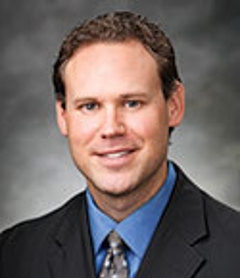Nichols, Lee
History of the HPI
Over the last 9 mos, <em>Hydrocarbon Processing</em> has provided a detailed history of the origins and evolution of the hydrocarbon processing industry (HPI). This robust analysis chronicled the beginnings of the modern refining and petrochemical industries through the technological advancements that have created the global energy juggernaut the industry has become today.
Industry Pioneers: The people that have advanced the HPI for more than 150 yr
Carl von Linde was a German scientist and engineer who pioneered new technologies in refrigeration and the invention of air separation and gas liquefaction processes. In the 1870s, Linde’s studies led to an efficient design for refrigeration.
HP Flashback: Excerpts from 2000–2022: Decarbonization, digital transformation, integration and reliability
The following is a mixture of technical articles, columns and headlines published in the 2000s by <em>Hydrocarbon Processing.</em> This collection of excerpts provides a look into the major technological advancements and topics/trends in the hydrocarbon processing industry during that timeframe.
History of the HPI: The 2000s: Net-zero, environmental regulations, capacity acceleration and digital transformation
This final installment of the History of the HPI series details major events in the refining and petrochemicals industry over the past 20 yr, including stricter regulations/initiatives to curb carbon emissions, a safer and more environmentally friendly way to produce and handle chemicals, significant capital investments to boost production capacity and digital transformation.
Industry Perspectives: Innovative technologies for a sustainable future: IRPC returns as an in-person event
In late September, <i>Hydrocarbon Processing</i> will again host the International Refining and Petrochemical Conference (IRPC) as an in-person event—the technical symposium has been held virtually since early 2021.
Editorial Comment: Although more than 170 yr old, the modern refining industry continues to evolve
As detailed in <i>Hydrocarbon Processing’s</i> History of the HPI series, the modern oil refining industry traces its origin back nearly 170 yr. The industry has not only propelled much of the world to a higher standard of living, but has also created new products and technologies that have extended life expectancies, created modern societies and lifesaving equipment, and revolutionized the way people travel and communicate.
HP Flashback: Excerpts from the 1990s: Process optimization, fuel quality and environmental compliance
The future is best described in three phases: Drivers for change, current responses and projections.
History of the HPI: The 1990s: Clean fuels and emissions mitigation, M&A, GTL and the fieldbus wars
Much like several initiatives passed in the 1970s and 1980s, the 1990s were a decade heavily focused on environmental issues, with many new regulations being enacted to not only mitigate industrial and vehicle emissions but also to advance the production of clean fuels globally.
HP Flashback: Excerpts from the 1980s: Energy efficiency, advanced process controls, improved maintenance and a focus on the environment
Can a computer reduce your maintenance?
History of the HPI: The 1980s: Oil spike/collapse, liquid crystals, conducting polymers and the rise of AR/VR
Several major impactful events took place in the global oil and gas and petrochemical industries in the 1980s.

- Honeywell collaborates with SAF One and Tata Projects to enable sustainable aviation fuel production 1/29
- Casale and OMNI Sign MoA to jointly advance waste-to-green methanol and hydrogen technologies 1/29
- GIZ and thyssenkrupp nucera partner to advance green hydrogen and power-to-X markets in India 1/29
- IACS issues new Unified Requirement on ammonia release mitigation systems 1/29
- TotalEnergies and Mozambique announce the full restart of the $20-B Mozambique LNG project 1/29
- CF Industries, POET launch low-carbon fertilizer pilot to cut ethanol production carbon intensity 1/29





